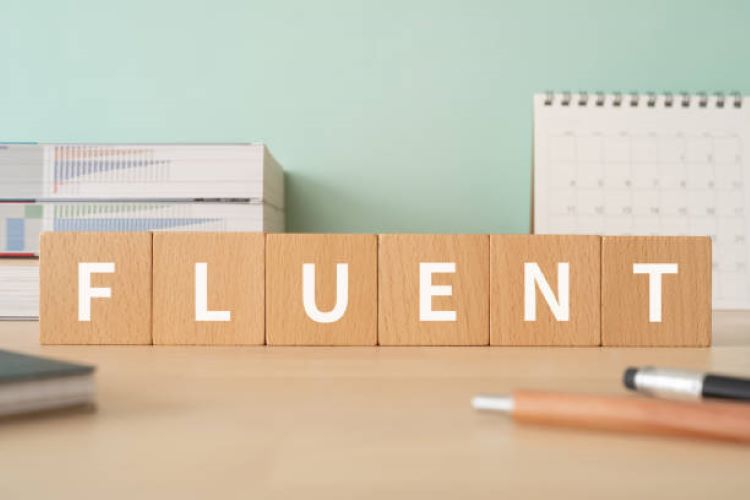English is one of the most widely spoken languages in the world. It is the official language of more than 50 countries and is used as a second language by many people around the globe. Therefore, learning English has become a necessity to communicate effectively and efficiently with people from different cultures and backgrounds. To become fluent in English, it is essential to have a good command of daily use English words. In this blog, we will explore 100 Daily Use English Words with Meaning and Use in Sentences to help you speak English fluently.
Daily Use English Words to Speak English Fluently
Daily use English words are those words that we use in our everyday conversations. These words are essential for effective communication and are the building blocks of the English language. Some of the most common daily use English words are greetings, pronouns, prepositions, conjunctions, adjectives, and adverbs. By learning these words, you will be able to express your thoughts and ideas confidently in English.
100 Daily Use English Words with Meaning and Use in Sentences
- Hello – used to greet someone when you meet them. Example: Hello, how are you doing?
- Goodbye – used to say goodbye to someone when you leave. Example: Goodbye, see you soon.
- Yes – used to agree or confirm something. Example: Yes, I will be there on time.
- No – used to disagree or deny something. Example: No, I don’t want to go there.
- Thank you – used to express gratitude. Example: Thank you for your help.
- Please – used to request something politely. Example: Can you please pass me the salt?
- Sorry – used to apologize for a mistake or an inconvenience. Example: I’m sorry for being late.
- Excuse me – used to politely interrupt or get someone’s attention. Example: Excuse me, do you have a moment to talk?
- May I – used to ask for permission. Example: May I leave early today?
- How are you? – used to ask someone how they are feeling. Example: How are you doing today?
- I – used to refer to oneself. Example: I am going to the store.
- You – used to refer to the person being spoken to. Example: What are you doing today?
- He – used to refer to a male person. Example: He is my brother.
- She – used to refer to a female person. Example: She is my sister.
- It – used to refer to something or someone. Example: It is a beautiful day today.
- We – used to refer to a group of people. Example: We are going on vacation next week.
- They – used to refer to more than one person. Example: They are my friends.
- This – used to refer to something close to the speaker. Example: This is my car.
- That – used to refer to something far from the speaker. Example: That is a nice shirt.
- Here – used to refer to a place near the speaker. Example: Come here and sit with me.
- There – used to refer to a place far from the speaker. Example: I want to go there someday.
- In – used to indicate location inside something. Example: The book is in the drawer.
- On – used to indicate location on top of something. Example: The phone is on the table.
- Under – used to indicate location beneath something. Example: The cat is under the bed.
- Behind – used to indicate location at the back of something. Example: The picture is hanging behind the couch.
- Beside – used to indicate location next to something
- Between – used to indicate location or distance separating two things. Example: The park is between the library and the school.
- Above – used to indicate location higher than something else. Example: The bird is flying above the tree.
- Below – used to indicate location lower than something else. Example: The fish is swimming below the surface of the water.
- Near – used to indicate location close to something else. Example: The grocery store is near my house.
- Far – used to indicate location distant from something else. Example: The beach is far from here.
- And – used to connect words or phrases. Example: I like pizza and pasta.
- But – used to connect contrasting ideas or phrases. Example: I like pizza, but I don’t like mushrooms.
- Or – used to present a choice between two options. Example: Would you like coffee or tea?
- Because – used to indicate a reason for something. Example: I stayed home because I was sick.
- So – used to indicate a consequence or result of something. Example: It was raining, so I stayed inside.
- Then – used to indicate a sequence of events. Example: I woke up early, then I had breakfast.
- Also – used to add more information or emphasis. Example: I like pizza, and I also like burgers.
- Only – used to indicate exclusivity or restriction. Example: I only have one piece of cake left.
- Very – used to intensify an adjective or adverb. Example: The cake was very delicious.
- Quite – used to indicate a high degree or extent. Example: The movie was quite long.
- Almost – used to indicate near completion or almost achieving something. Example: I almost missed my flight.
- Really – used to emphasize something or express surprise. Example: You’re really good at playing the guitar!
- Too – used to indicate excess or more than enough. Example: The soup is too salty.
- Enough – used to indicate sufficiency or adequacy. Example: I have enough money to buy a new phone.
- Always – used to indicate regularity or frequency. Example: I always wake up early.
- Never – used to indicate the absence or lack of something. Example: I never go to bed late.
- Sometimes – used to indicate occasional or infrequent occurrences. Example: Sometimes, I like to go for a walk in the park.
- Usually – used to indicate regularity or typical behaviour. Example: I usually have cereal for breakfast.
- Early – used to indicate a time before the usual or expected time. Example: I woke up early this morning.
- Late – used to indicate a time after the usual or expected time. Example: I’m sorry, I’m running late for the meeting.
- Quick – used to indicate a short duration or speed. Example: Can you give me a quick answer, please?
- Slow – used to indicate a longer duration or lack of speed. Example: The traffic is moving really slow today.
- Big – used to indicate a large size or amount. Example: The elephant is a big animal.
- Small – used to indicate a small size or amount. Example: The mouse is a small animal.
- Tall – used to indicate a height greater than average. Example: The basketball player is very tall.
- Short – used to indicate a height less than average. Example: I’m sorry, I can’t reach the top shelf, I’m too short.
- Heavy – used to indicate a weight greater than average.
- Light – used to indicate a weight less than average. Example: The package was very light.
- Hot – used to indicate high temperature. Example: The tea is too hot to drink.
- Cold – used to indicate low temperature. Example: I need a sweater, it’s cold outside.
- Wet – used to indicate moisture or dampness. Example: The grass is wet with dew.
- Dry – used to indicate absence of moisture or dampness. Example: The towel is dry.
- Clean – used to indicate absence of dirt or impurities. Example: The house is clean after I vacuumed.
- Dirty – used to indicate presence of dirt or impurities. Example: I need to wash my hands, they’re dirty.
- New – used to indicate something recently acquired or produced. Example: I just bought a new car.
- Old – used to indicate something that has been around for a long time. Example: My grandparents have an old photo album.
- Good – used to indicate high quality or satisfactory performance. Example: The food at this restaurant is really good.
- Bad – used to indicate low quality or unsatisfactory performance. Example: This movie is really bad, I don’t like it.
- Great – used to indicate something that is better than good. Example: I had a great time at the party.
- Terrible – used to indicate something that is worse than bad. Example: The traffic was terrible this morning.
- Happy – used to indicate a positive emotional state. Example: I’m so happy to see you!
- Sad – used to indicate a negative emotional state. Example: I felt sad after watching that movie.
- Angry – used to indicate a feeling of intense displeasure or irritation. Example: The customer was angry because the order was wrong.
- Tired – used to indicate a feeling of fatigue or exhaustion. Example: I’m so tired after working all day.
- Hungry – used to indicate a feeling of need for food. Example: I’m hungry, let’s go get something to eat.
- Thirsty – used to indicate a feeling of need for drink. Example: I’m thirsty, can I have some water?
- Beautiful – used to indicate physical attractiveness or aesthetic appeal. Example: The sunset is so beautiful tonight.
- Ugly – used to indicate physical unattractiveness or lack of aesthetic appeal. Example: The building is so ugly, I don’t like it.
- Expensive – used to indicate a high cost or price. Example: The designer bag is so expensive.
- Cheap – used to indicate a low cost or price. Example: The t-shirt is so cheap, I can buy several.
- Easy – used to indicate simplicity or lack of difficulty. Example: This recipe is so easy to make.
- Difficult – used to indicate complexity or high level of challenge. Example: This math problem is so difficult, I don’t understand it.
- Comfortable – used to indicate a state of physical ease or relaxation. Example: The couch is so comfortable to sit on.
- Uncomfortable – used to indicate a state of physical discomfort or unease. Example: The chair is so uncomfortable to sit on, my back hurts.
- Busy – used to indicate a state of being occupied or having a lot to do. Example: I’m so busy at work, I don’t have time for anything else.
- Free – used to indicate a state of having no obligations or responsibilities. Example: I have a free weekend, let’s go hiking.
- Famous – used to indicate a state of being well-known or recognized. Example: Taylor Swift is a famous singer.
- Unknown – used to indicate a state of being unfamiliar or not recognized. Example: The person who called me is unknown to me.
- Busybody – used to indicate someone who is meddlesome or nosy. Example: My neighbour is a busybody, always asking about my personal life.
- Chatty – used to indicate someone who talks a lot or is very talkative. Example: My friend is very chatty, she never stops talking.
- Clumsy – used to indicate someone who lacks coordination or is awkward in movement. Example: I’m very clumsy and always bump into things.
- Crafty – used to indicate someone who is sly or cunning. Example: The salesman was very crafty and talked me into buying something I didn’t need.
- Deaf – used to indicate a hearing impairment or inability to hear. Example: My grandfather is deaf, so we communicate using sign language.
- Eager – used to indicate someone who is enthusiastic or willing to do something. Example: The kids are eager to go to the amusement park.
- Grumpy – used to indicate someone who is irritable or easily annoyed. Example: My boss is always grumpy in the morning.
- Handsome – used to indicate the physical attractiveness of a man. Example: My husband is very handsome.
- Gorgeous – used to indicate physical attractiveness of a woman. Example: My wife is gorgeous.
- Jealous – used to indicate envy or possessiveness. Example: My friend was jealous of my new car.
- Lazy – used to indicate a lack of motivation or unwillingness to do work. Example: I’m feeling lazy today and don’t want to do anything.
Conclusion
In conclusion, learning and using daily English words is essential to improve your communication skills and fluency in English. These 100 daily use English words are commonly used in daily conversations and can help you express yourself effectively. By practicing and incorporating these words into your vocabulary, you can improve your English language skills and communicate more confidently. Remember to always practice and use English as much as possible to achieve fluency in the language.






